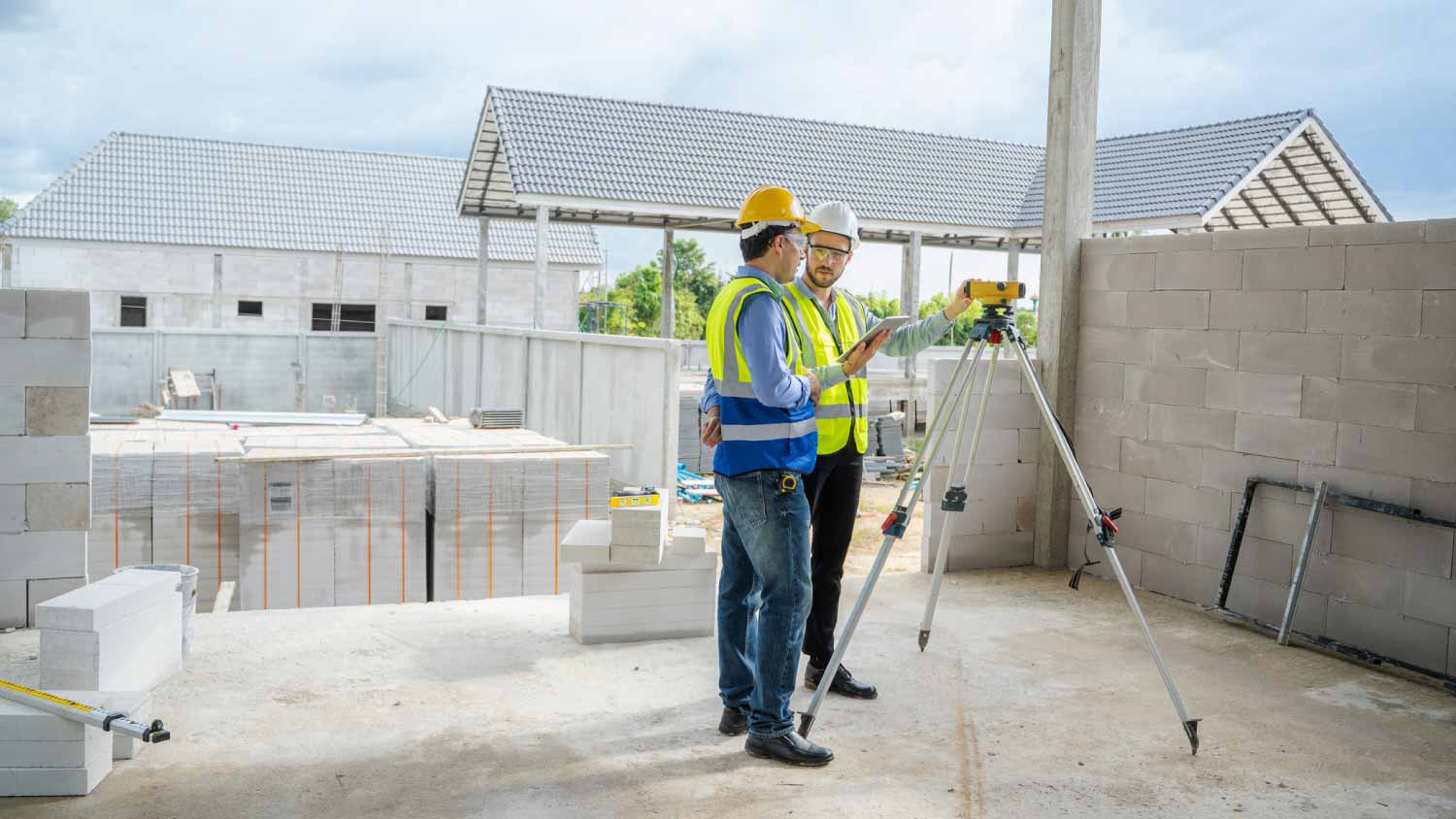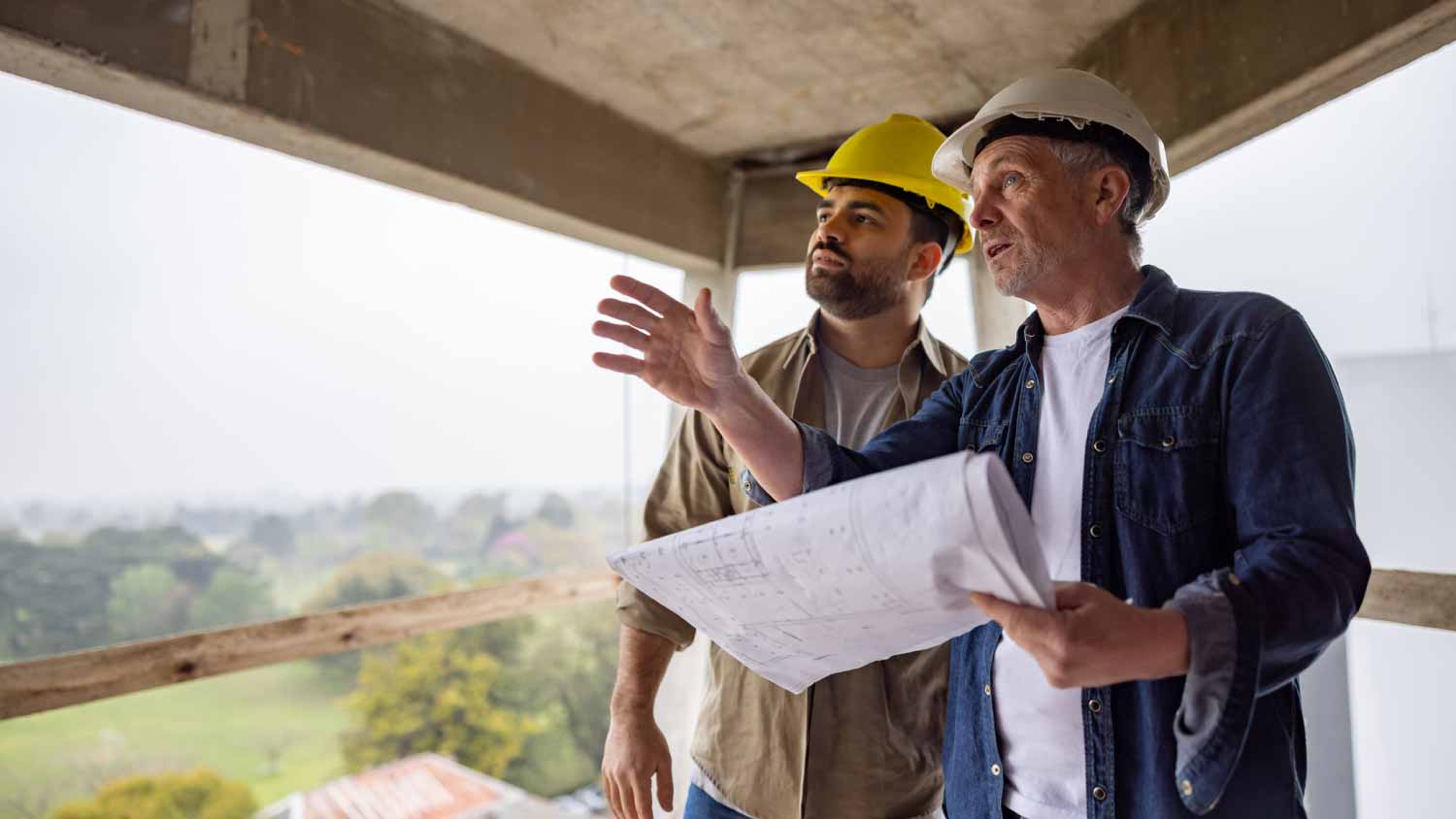8 Questions to Ask a Land Surveyor Before Hiring
And the survey(or) says


Ensuring a land surveyor is properly licensed in your state of residence is important.
Checking a land surveyor’s references can help you determine if they’re right for the job.
Don’t hesitate to ask a land surveyor what their fees are.
There are different types of land surveys—make sure you know which you’re getting.
To avoid getting yourself into a property pickle, it’s important to know what a land survey is and how to prepare for it. Whether you’re buying or selling property, working on a construction project, or settling a boundary dispute, a land surveyor can provide you with the specifics of your property’s legal dimensions. Here, we’ve compiled the eight most important questions to ask a land surveyor before you hire them for the job.
1. Are You Fully Licensed in My State?
It is vital that a land surveyor is fully licensed in your state before they do a land survey. If they are not, you can quickly find yourself in some legal hot water.
To become a licensed land surveyor, the person you hire will need to complete a degree in a related field, pass an exam, and have accumulated years of experience in the field. While each state has its own requirements, these are the general rules. Additionally, land surveyors will need to renew their license every few years.
When you’re researching land surveyors near you, make sure you check the specific licensing requirements for your state.
The last thing you want is to end up in a boundary dispute with your neighbor. Having a land survey readily available can prevent the need for legal proceedings and preserve your relationship.
2. Are You Insured?
Asking a land surveyor if they have liability insurance is one of the most important questions to ask to ensure everyone involved in the project is protected. If a land surveyor doesn’t have liability insurance, it could mean that they are not a licensed professional. If you’re going to pay the cost for a land survey, you want to do it right and not cut corners.
3. Can You Share References and/or Reviews of Your Work?

Asking for references and/or reviews of a land surveyor’s work can help you confirm that they are reputable and have provided satisfactory service in the past. It also gives you a chance to ask about their experience, and see how it aligns with your project. Along with references, you can find and ask previous clients about their experience with the specific land surveyor.
4. What is Your Crew’s Level of Experience and Education?
Knowing the crew’s education and level of experience is important, as they will perform much of the work for you. If the crew doesn’t have as much experience, the project may take longer. This may be ok, but if you’re on a tight schedule, you may want to find a different surveyor.
5. What Are Your Fees?
This goes for most construction projects—or anything, really. Knowing the cost of your land survey will help you determine if this is the right surveyor for you. Surveyors will most likely charge different prices based on their credentials, experience, where you live, the size of your property, and the type of survey needed.
Getting an estimate can help you budget for the land survey. For example, if you need to include land development costs or the cost to clear land in your budget, knowing a land surveyor’s fees upfront can help you hire whomever is the best for your project–and your budget.
6. How Long Will It Take You to Complete This Job?

Depending on your plans, knowing how long it will take to complete a land survey can help you plan for other things you’re working on. Of course, while this is a good question to ask a land surveyor, the answer will always be an estimate, as opposed to a definitive timeline. The time it takes to complete a land survey will depend on the type of survey, and the size of the property.
7. What Is Included in the Survey Report?
Before you agree to the land survey, make sure you know exactly what will be included in the report, so you and the surveyor are on the same page in terms of expectations. There are different types of land surveys, but it should–at a minimum–include the property boundaries, features, and dimensions, as well as any relevant drawings and a record of the survey map.
8. Will You Manage the Retrieval of Any Required Permits?
To avoid any legal issues, it’s important to make sure all necessary permits for the project are obtained. The specifics of what is required will depend on the job, as well as where you live, but knowing who is responsible for obtaining the permits is a key step. Ask the land surveyor if they will handle this, or if you will need to do it.





- How to Hire a Land Surveyor You Can Count On
- Ultimate Guide to Land Surveys for Homeowners and Homebuyers
- What Is a Land Survey and Why Is It Important?
- 8 Types of Lands Surveys and How They're Used
- Who Should You Hire To Clear Land for Your Next Big Project?
- How to Find Property Lines for Fencing: 7 Easy Ways
- How to Build a House: Your Complete Guide to the Home-Building Process
- How to Read Your Property Survey for a Fence Line
- How to Hire a Pro for Your Home Project
- 6 Tips to Prepare for a Successful Home Remodel










